detail profile yuriko hamada
Peran Yang Di Mainkan Yuriko Hamada
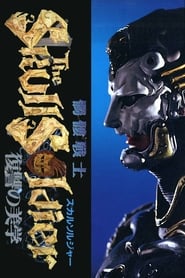 Narumi a man out for revenge...
Narumi a man out for revenge...The Skull Soldier 1992
Narumi, a man out for revenge with the powers he received and a bit of help from the one who saved his life, he creates the persona of Skull Soldier and attempts to discover who really killed his sister.
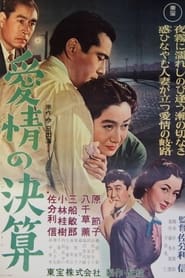 Living in a house that has...
Living in a house that has...Settlement of Love 1956
Living in a house that has lost its man to the war a year earlier are the widow and her child. Four of the dead man's friends gather to have an anniversary wake. Some time following the ceremony one of the attendees marries the widow. Soon another friend of the deceased and his family also make the house their home when they move to town. Everyone's life is changed quite a bit. When the newer husband sustains an injury to his leg and loses his job it leads to the wife having to work. By the time the fifth anniversary of the friend's death occurs and another reunion is held another friend is in love with the former widow.
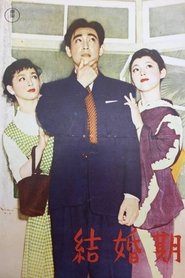 Urban love comedy in which Koji...
Urban love comedy in which Koji...Wedding Season 1954
Urban love comedy in which Koji Tsuruta, who works for the Tokyo Metropolitan Government's Parks and Greenery Department, plays love shepherd to a number of women, including his true love, Inako Arima.
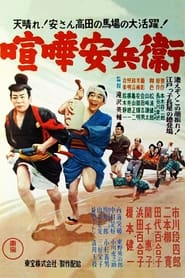 Yasube Nakayama left the clan and...
Yasube Nakayama left the clan and...Fighting Yasubei 1952
Yasube Nakayama left the clan and lives in Edo. One day, Yasubei visits his uncle Rokuroemon Kanno to borrow money from a moneylender in the amount of 13 ryo in order to save Oteru, the daughter of a merchant. However, the next day, Rokuroemon was killed in a fight by the Murakami brothers. Yasubei rushed to the scene, took revenge and became the husband of Miya, the daughter of Horibe Yahei.
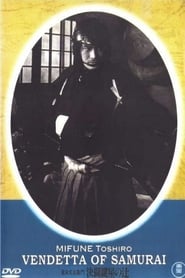 The famous showdown at Kagiya corner...
The famous showdown at Kagiya corner...Vendetta of a Samurai 1952
The famous showdown at Kagiya corner has been told many times, but never before with the realism and intensity of this version scripted by Kurosawa Akira and starring Mifune Toshiro as the famed swordsman who must face his best friend as they are forced to take opposite sides in a vendetta caused by the murder of a family member. Told mostly in flashback as the avengers await the arrival of their quarry, this film displays true heroism in the face of fear as most of the combatants, while of the samurai class are not skilled swordsmen. They contrast sharply with the true warriors involved in this battle. Araki Mataemon (Mifune), who was not only a direct student of Yagyu Munenori, but the founder of his own sword style under the Yagyu name is a powerful force ready to assist his brother-in-law against the murderer's allies that include not only another noted sword teacher, but the deadly spear of Katsumi no Hanbei.
 Director Hiroshi Inagakis early version of...
Director Hiroshi Inagakis early version of...Sasaki Kojiro 1951
Director Hiroshi Inagaki's early version of the life and death of famed swordsman Sasaki Kojiro. Otani Tomoemon gives a brilliant performance as Sasaki Kojiro, who rises from humble beginnings to national fame, and a young Toshiro Mifune appears as the legendary master swordsman Miyamoto Musashi for the first time and essentially sets the standard for future portrayals.This masterpiece is based on the original story as written by noted author Murakami Genzo and is far superior to any other versions. Following Kojiro from his earliest days through his fateful meeting with Musashi, this movie is filled with exciting and dramatic moments culminating in the best version of the final duel ever seen on film.
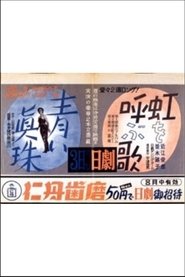 The Blue Pearl depicts the interplay...
The Blue Pearl depicts the interplay...The Blue Pearl 1951
The Blue Pearl depicts the interplay between a young man from Tokyo and two ama (pearl divers; literally “women of the sea”) in a superstitious coastal town. Though raised within the same tradition-bound crucible, the two women – Noe and Riu – are portrayed as diametric opposites; the former meek but affectionate, the latter strong-willed but jaded by a tryst with metropolitan life.
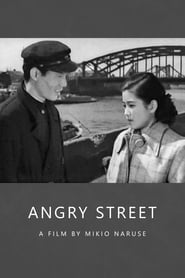 The Angry Street includes a great...
The Angry Street includes a great...The Angry Street 1950
The Angry Street includes a great deal of location shooting in the rebuilt city, including downtown streets, residential neighborhoods, the campus of the University of Tokyo, and the high life of jazzy dance halls. Sudo (Hara Yasumi) and Mori (Uno Jukichi) are two university students who make money by picking up rich girls in dance clubs and conning them into giving them cash. Mori is the brains of the operation, and Sudo is the suave dancer who picks up the girls. Over the course of the film, Sudo becomes involved with three different girls and is drawn into the gangster milieu, which he seems unable to resist even though he is responsible for his mother, grandmother, and sister, Masako (Wakayama Setsuko). In this world of bad boys and girls, Masako is the pillar of strength and moral virtue who finally enables Mori to straighten out.
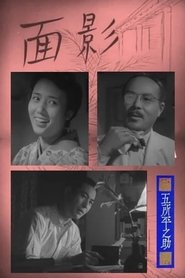 During his summer holiday Kawasaki Ryuichi...
During his summer holiday Kawasaki Ryuichi...A Visage to Remember 1948
During his summer holiday, Kawasaki Ryuichi (Ryuzaki Ichiro), a handsome engineer in his late twenties, visits his teacher and mentor, Professor Inagaki (Sugai Ichiro), at his seaside home. There he meets the professor's lovely young wife, Sachiko (Hamada Yuriko), and is unsettled by the striking resemblance she bears to his wife, who died three years earlier. Attracted to Sachiko, he does his best to hide his feelings. The couple, however, senses a deep-seated melancholy in him. Attributing it to the loss of his wife, they urge him to marry their niece, Kaoru, but he is not interested. Shortly after, Fumiko , Sachiko's older sister, realizes that Sachiko and Kawasaki have feelings for each other, but she keeps her counsel. One day Kawasaki, Sachiko, and Kaoru go boating when a storm forces them to stay overnight at a hotel. Unable to sleep, Kawasaki takes a walk along the beach where he finds Sachiko, also unable to sleep. He declares his love for her.
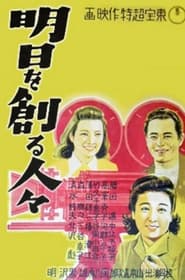 Two sisters one a dancer and...
Two sisters one a dancer and...Those Who Make Tomorrow 1946
Two sisters, one a dancer and the other a script supervisor at a big movie studio, become embroiled in union activities when a strike is called in sympathy with striking railroad workers, one of whom boards with the sisters and their parents. The girls' father argues with them about their strike but finds his views changing when he loses his job.
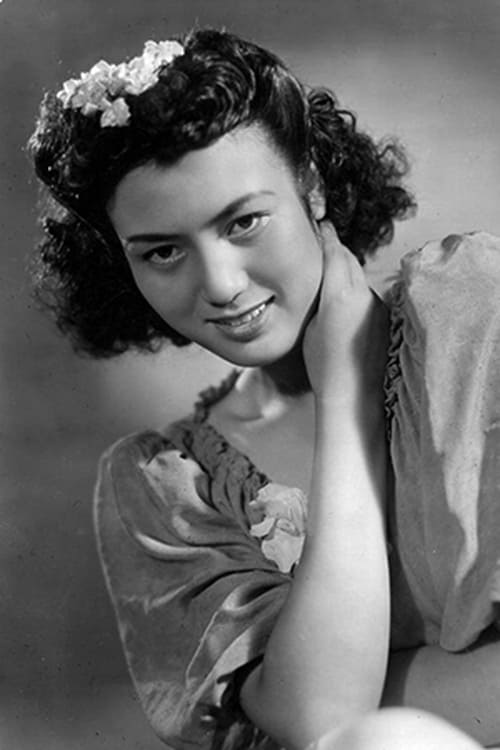
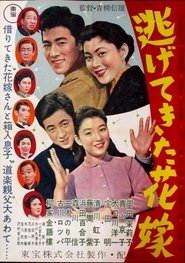
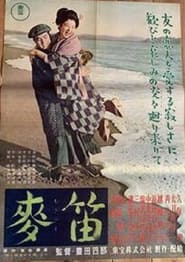 Two youths the serious son of...
Two youths the serious son of...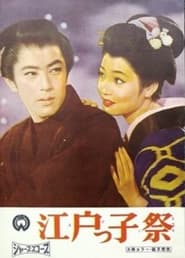 Period film about a feudal era...
Period film about a feudal era...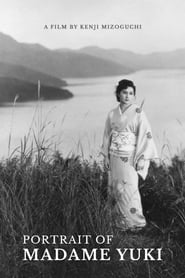 A young woman takes up her...
A young woman takes up her...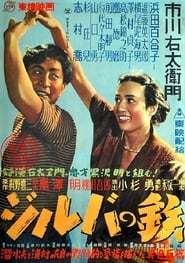
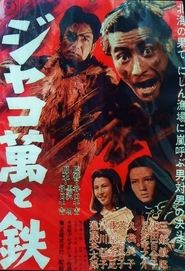 In a village subsisting on it...
In a village subsisting on it...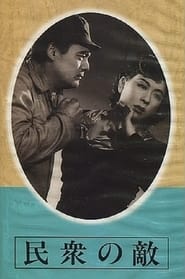 Tadashi Imai 1946 movie
Tadashi Imai 1946 movie